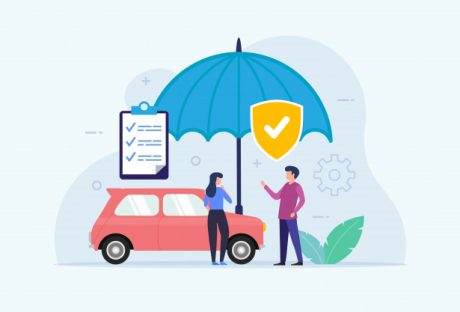Bankruptcy means a test is done to determine who can file for chapter 7 bankruptcy. The means test considers everything while determining your current position to pay your debt to the creditors. It goes through your income, expenditure, assets, and family members.
The means test was designed to reduce the number of debtors willing to get their debts erased. It has been seen that most of the debtors who have applied for the means test have passed.
Those people who cannot qualify for chapter 7 or want to keep their assets to themselves can apply for chapter 13 bankruptcy.
How Chapter 7 Bankruptcy Works?
Applying for chapter 7 can be an expensive and lengthy process. The means test helps the government clarify who is eligible for chapter 7. The Means Test has two parts. Both parts are designed to see through your income and assets and determine the current financial standing.
You have to apply for the Means Test only for the primary consumer debts like medical debt or credit card debts. You do not have to apply for this test if your debt is related to business loans.
First Part
The part of the Means Test determines whether your house income is below the state’s median income. The means test starts gathering information about your income, expenses, and assets. These data are mostly collected from the past six months. However, there have been cases where this six months time duration can be changed.
After all the reports, if it is being found out that your income is below the median income, you will qualify the Means Test. In a report made by the US government in 2013, more than 12% of the debtors were able to qualify the Means test in the first stage.
Second Part
The second part consists of going through all your expenses. These expenses consist of everything you pay for, starting from paying your utility bills, grocery bills to the travel expenses and education expenses. Out of all the expenses, only the allowable expenses are considered to be used by you. Other expenses that are not necessary are used to pay off your debts.
While you document the list of expenses, be thorough about the things you add to the list. Remember, those expenses will decide whether your petition will be accepted or not.
Allowable expenses are based on the local and national standards used by the IRS. The national list covers items like food and clothing, and local items cover housing expenses and car payments. You need to work carefully to ensure that all your expenses are thoroughly documented.
What’s Next After You Qualify for the Means Test?
Passing the means test means you have the green light to apply a petition for chapter 7 bankruptcy. Once your petition is accepted, most of the unsecured debts will be forgiven. That does not mean that this will be the best route for you.
There are also chapter 13 bankruptcy that might give more advantage over chapter 7 in many cases. Chapter 13 will help you put a hold on all your debts, mortgages, overdue loans, and bank taxes.
What Will Happen After You Fail The Test?
Once you fail the Means Test, there are no more appeals for a certain period. You can apply for the chapter, or you can wait for the cooldown time to apply again for the means test.
We have already mentioned that the Means Test goes through all your financial income and expenditure in the last six months. That means, after a failed attempt at the Means Test, you can apply again after six months.
However, if you do not intend to apply for the Means Test again in the future, you will be restricted to chapter 13 and will have to pay off your debt based on the chapter 13 provision.
The Bottom Line
Is it really hard to apply for a loan after bankruptcy? Well, you can say more than hard; it is more complex. You first need to qualify the Means Test, and then only you can apply for chapter 7. It is better to have an attorney while you are managing legal documentation.
Read Also:
- 8 Simple Tips To Pay Off Your Loans Faster
- 5 Must-Have Long-Term Goals for A Secure Future
- What are the types of debt that can be discharged in bankruptcy?
- Using Short-Term Loans to Help Rebuild Your Credit Score























